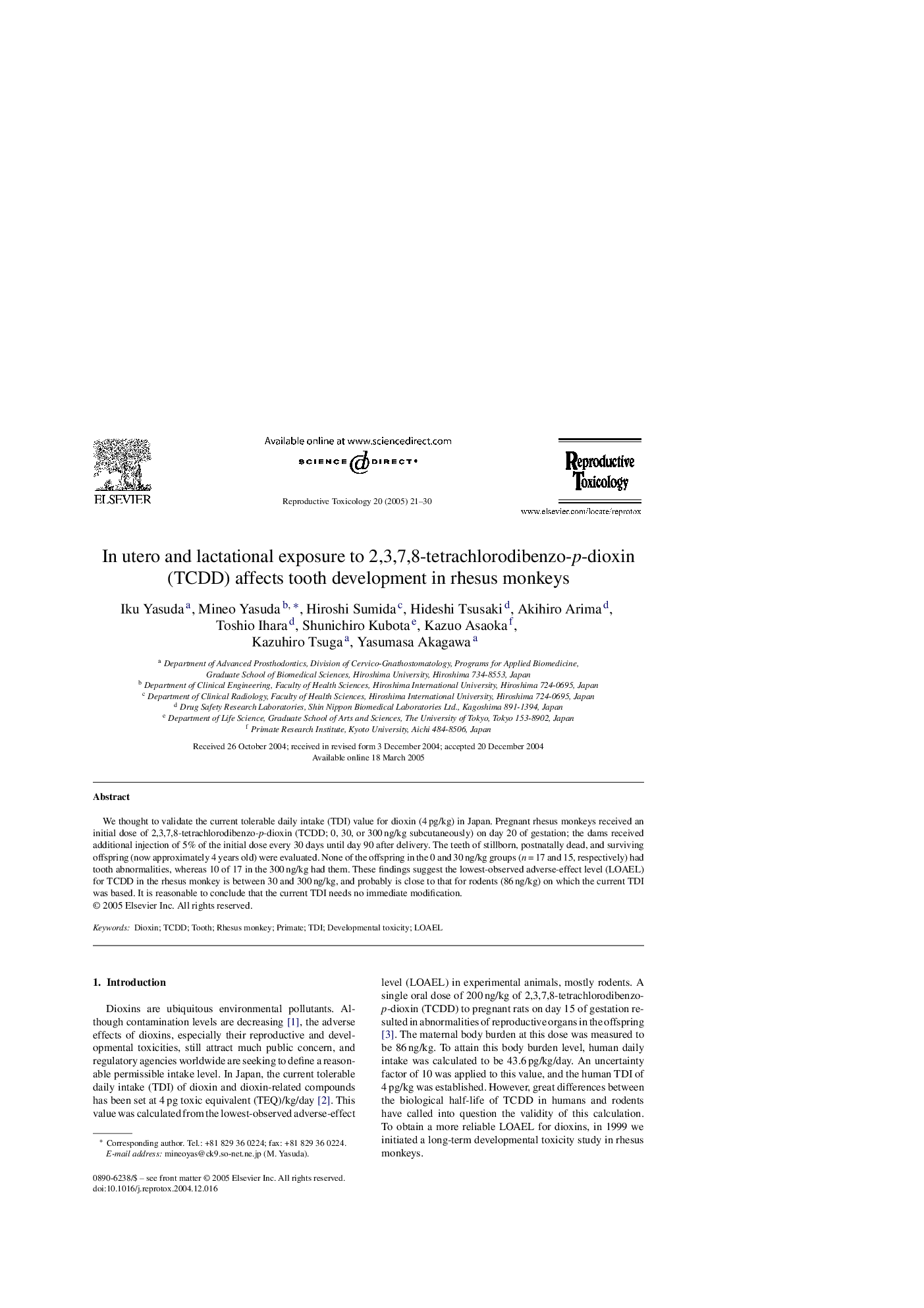| کد مقاله | کد نشریه | سال انتشار | مقاله انگلیسی | نسخه تمام متن |
|---|---|---|---|---|
| 9033958 | 1132279 | 2005 | 10 صفحه PDF | دانلود رایگان |
عنوان انگلیسی مقاله ISI
In utero and lactational exposure to 2,3,7,8-tetrachlorodibenzo-p-dioxin (TCDD) affects tooth development in rhesus monkeys
دانلود مقاله + سفارش ترجمه
دانلود مقاله ISI انگلیسی
رایگان برای ایرانیان
کلمات کلیدی
موضوعات مرتبط
علوم زیستی و بیوفناوری
علوم محیط زیست
بهداشت، سم شناسی و جهش زایی
پیش نمایش صفحه اول مقاله

چکیده انگلیسی
We thought to validate the current tolerable daily intake (TDI) value for dioxin (4 pg/kg) in Japan. Pregnant rhesus monkeys received an initial dose of 2,3,7,8-tetrachlorodibenzo-p-dioxin (TCDD; 0, 30, or 300 ng/kg subcutaneously) on day 20 of gestation; the dams received additional injection of 5% of the initial dose every 30 days until day 90 after delivery. The teeth of stillborn, postnatally dead, and surviving offspring (now approximately 4 years old) were evaluated. None of the offspring in the 0 and 30 ng/kg groups (n = 17 and 15, respectively) had tooth abnormalities, whereas 10 of 17 in the 300 ng/kg had them. These findings suggest the lowest-observed adverse-effect level (LOAEL) for TCDD in the rhesus monkey is between 30 and 300 ng/kg, and probably is close to that for rodents (86 ng/kg) on which the current TDI was based. It is reasonable to conclude that the current TDI needs no immediate modification.
ناشر
Database: Elsevier - ScienceDirect (ساینس دایرکت)
Journal: Reproductive Toxicology - Volume 20, Issue 1, MayâJune 2005, Pages 21-30
Journal: Reproductive Toxicology - Volume 20, Issue 1, MayâJune 2005, Pages 21-30
نویسندگان
Iku Yasuda, Mineo Yasuda, Hiroshi Sumida, Hideshi Tsusaki, Akihiro Arima, Toshio Ihara, Shunichiro Kubota, Kazuo Asaoka, Kazuhiro Tsuga, Yasumasa Akagawa,